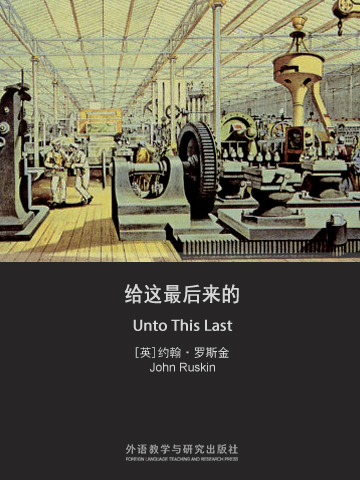撕开政治经济学虚伪的面具,论述企业和社会的运转。
The "last" are the eleventh hour labourers, who are paid as if they had worked the entire day. Rather than discuss the religious meaning of the parable, whereby the eleventh hour labourers would be death-bed converts, or the peoples of the world who come late to religion, Ruskin looks at the social and economic implications, discussing issues such as who should receive a living wage. This essay is very critical of capitalist economists of the 18th and 19th centuries. In this sense, Ruskin is a precursor of social economy. Because the essay also attacks the destructive effects of industrialism upon the natural world, some historians have seen it as anticipating the Green Movement.
《给这最后来的》这本书的作者约翰•罗斯金在该书中以犀利的笔锋,在英国19世纪资本主义自由市场鼎盛时期,撕开了政治经济学基本原则的虚伪面具,使其罪恶的本性昭然于世。该书抨击英国工业革命时期的市场经济学,并描绘了一幅与之形成鲜明对照的道德蓝图,论述企业和社会应该如何运转,倡导社会改良。
Unto This Last is an essay and book on economy by John Ruskin, first published in December 1860 in the monthly journal Cornhill Magazine in four articles. Ruskin says himself that these articles were "very violently criticized", forcing the publisher to stop the publication after four months. Subscribers sent protest letters. But Ruskin countered the attack and published the four articles in a book in May 1862.
- Essay I The Roots of Honour
- Essay II The Veins of Wealth
- Essay III Qui Judicatis Terram
- Essay IV Ad Valorem
- 书评 写书评
- 笔记
-
书评加载中...






















 京公网安备 11010802032529号
京公网安备 11010802032529号
笔记加载中...